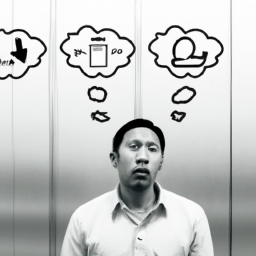Have you ever experienced a dream where you unexpectedly find yourself urinating, only to wake up and discover that you have wet the bed? It is a humiliating and unpleasant situation, but it is actually quite common. As someone who has personally gone through this phenomenon, I have frequently pondered why I urinate in my dreams and what it indicates about my general health and wellness.
In this article, we’ll explore the science behind dreams and the physical reasons for dream urination. We’ll also delve into the relationship between dreams and emotions and provide some practical tips for managing dream urination.
Whether you’re someone who experiences this phenomenon regularly or just curious about the mysteries of the human mind, read on to discover why you might be peeing in your dreams.
Key Takeaways
- Dream urination is a common experience, with up to 83% of people having experienced it.
- The causes of dream urination can include the brain stimulating the bladder to contract, as well as psychological and emotional factors such as stress and trauma.
- Managing dream urination can be done through practicing pelvic floor exercises, limiting fluid intake before bed, using the bathroom before sleeping, and avoiding caffeine and alcohol before bedtime.
- The interpretation of a dream about urination can vary depending on personal experiences and emotions, and may be a coping mechanism for the subconscious mind, particularly in cases of trauma or PTSD.
Understanding the Science Behind Dreams
You’re lying in bed, your brain firing signals while you slip into dreamland, and suddenly you feel the irresistible urge to pee. It’s a strange feeling, especially since you know that you’ve already emptied your bladder before going to bed.
However, there’s a scientific explanation behind this phenomenon.
During REM sleep, the stage of sleep where dreams occur, the body relaxes and the brain becomes highly active. This increased brain activity can stimulate the bladder and cause it to contract, leading to the sensation of needing to urinate.
So, while you may not actually be peeing in your dream, your brain is interpreting the physical sensation of a full bladder and incorporating it into your dream.
The Phenomenon of Dream Urination
I’ve had some pretty bizarre dreams in my lifetime, but one particular phenomenon that always leaves me scratching my head is dream urination.
It’s more common than you might think – in fact, studies suggest that up to 83% of people have experienced it at some point in their lives.
But why does it happen?
There are a few theories out there, and some experts believe that it could be linked to psychological or emotional factors.
Prevalence of Dream Urination
Interestingly enough, most people experience dream urination at some point in their lives. It’s a common occurrence that can happen to anyone.
Here are some facts about the prevalence of dream urination:
- Dream urination can happen to both men and women of any age.
- It’s more common in childhood and adolescence, but can still happen in adulthood.
- People who have bladder issues or are pregnant may experience it more frequently.
- It’s not a serious medical condition, but can be embarrassing if it happens in real life.
- Dream urination isn’t a sign of a psychological disorder or mental illness.
Despite its prevalence, the reasons behind dream urination are still largely unknown. Some experts believe it’s related to the body’s need to release urine while sleeping, while others think it may be a result of the brain’s inability to distinguish between the dream world and reality.
Nevertheless, it’s a common occurrence that many people experience and shouldn’t be a cause for concern.
Theories on Why it Happens
One may wonder why dream urination occurs and theories suggest it may be related to the body’s need to release urine while sleeping or the brain’s inability to distinguish between the dream world and reality.
The body has a natural urge to eliminate waste, and when we enter a deep sleep, our brain signals our bladder to release urine. However, if we are in a dream state, our brain may not properly interpret this signal and instead create a scenario in which we are urinating in our dream.
Another theory is that dream urination may be linked to emotional or psychological factors. Some researchers suggest that the act of urinating in a dream may symbolize a release of emotions or stress in one’s waking life.
Additionally, those who experience frequent urinary tract infections or urinary incontinence may be more likely to dream about urination as it is a common and persistent issue in their lives. Understanding the reasons behind dream urination can provide insight into our subconscious thoughts and physical needs.
Moving forward, it’s important to explore the psychological and emotional impact of this phenomenon.
The Psychological and Emotional Impact
The impact of dream urination on our psyche and emotions can be compared to a ripple effect, affecting our sense of self and overall well-being. Here are some ways in which it can affect us:
-
Embarrassment: Dream urination can cause feelings of shame and embarrassment, even though it was just a dream. It can be difficult to shake off these feelings and can lead to a negative self-image.
-
Anxiety: Dreams are often a reflection of our subconscious thoughts and emotions. Dreaming about urination can signify anxiety about being unable to control certain aspects of our lives.
-
Relief: On the other hand, dream urination can also bring a sense of relief and release. It can symbolize letting go of something that has been weighing on our minds.
-
Confusion: Some people may be confused about why they are dreaming about urination, especially if it is not a common dream for them. This confusion can lead to further anxiety and stress.
-
Interpretation: The interpretation of a dream about urination can vary depending on the individual’s personal experiences and emotions. It’s important to explore the meaning behind the dream to better understand its impact on us.
Moving on to the next section about the physical reasons for dream urination, it’s important to note that there are several factors that can contribute to this phenomenon.
The Physical Reasons for Dream Urination
Did you know that your body physically reacts to dreams involving urination, causing you to pee in real life? It’s true! This phenomenon is called sleep enuresis, and it happens when your brain mistakenly signals your bladder to release urine during REM sleep.
During this stage of sleep, your muscles are relaxed, and your mind is more active, making it easier for your body to respond to dream stimuli. Sleep enuresis can happen to anyone, but it’s more common in children, especially those under the age of six.
As we age, our bodies become better at recognizing the signals that indicate a full bladder, and we learn to wake up and go to the bathroom before it’s too late. However, stress, anxiety, or certain medical conditions can cause sleep enuresis to persist into adulthood.
Understanding the physical reasons behind dream urination can help us better manage this condition and seek appropriate treatment, especially if it’s affecting our quality of life. Dream urination is just one example of how our bodies and minds are interconnected.
In the next section, we’ll explore the relationship between dreams and emotions and how they can impact our mental health.
The Relationship Between Dreams and Emotions
I’ve always found it fascinating how our dreams can reflect our emotions. It’s amazing how the subconscious mind can create vivid scenarios that mirror our current state of mind.
In this subtopic, we’ll be discussing how stress, anxiety, trauma, and other emotional triggers can affect our dreams.
Stress and Anxiety
Well, ain’t it just grand that my stress and anxiety have manifested in my dreams as the need to pee uncontrollably? It’s embarrassing and frustrating to wake up feeling like I’ve wet the bed, only to realize it was just a dream. But apparently, it’s a common occurrence for those of us who struggle with stress and anxiety.
Here are some possible reasons why stress and anxiety can cause us to pee in our dreams:
- Stress and anxiety can cause our muscles to tense up, including those in the bladder, which can lead to a feeling of urgency to pee.
- Dreams can be a way for our subconscious to process and release emotions, including those related to stress and anxiety. Peeing in a dream could symbolize a need to release these emotions.
- Stress and anxiety can also disrupt our sleep, causing us to wake up more frequently throughout the night. This can increase the likelihood of having a dream about peeing, since we may be more aware of our bodily sensations while we’re half-asleep.
- Finally, peeing in a dream could simply be a random occurrence that has no deeper meaning. Dreams are often unpredictable and don’t always follow logical patterns.
But why stop at stress and anxiety? Let’s move on to the next topic and explore how trauma and PTSD can affect our dreams.
Trauma and PTSD
If you’ve ever experienced trauma or PTSD, you may be familiar with the way it can impact your dreams. For me, I have vivid and intense dreams that often involve reliving the traumatic event. These dreams can be so real that I wake up feeling anxious and on edge. But in addition to these types of dreams, I also experience dreams where I am peeing.
According to research, dreams about urination are a common experience for those who have experienced trauma or PTSD. It can be a form of coping mechanism for the subconscious mind. The table below shows some common dream symbols and their potential meanings in the context of trauma and PTSD.
| Symbol | Potential Meaning |
|---|---|
| Water | Emotions, unconscious mind |
| Bathroom | Vulnerability, privacy |
| Urination | Release, letting go |
| Cleaning | Eliminating negativity |
| Dirty water | Negative emotions |
| Being lost | Feeling abandoned |
| Being chased | Fear, anxiety |
While trauma and PTSD are common reasons for dreaming about peeing, there are other emotional triggers that can also cause it.
Other Emotional Triggers
Feeling stressed or anxious can sometimes lead to having unusual or unexpected dreams. These dreams can manifest in different ways, one of which is peeing in your dreams.
When I’m feeling overwhelmed or anxious, I often dream about being in a situation where I urgently need to use the bathroom, but I can’t find one. This can result in dream urination, which can be embarrassing and uncomfortable.
To emphasize the impact of emotional triggers on dream urination, here are four possible factors that could contribute to this phenomenon:
- Anxiety or stress
- Depression or other mental health issues
- Medications or substance use
- Hormonal changes, such as during menopause
Understanding the potential emotional triggers that can cause dream urination can help in managing this issue. In the next section, I’ll share some tips for managing dream urination that have worked for me.
Tips for Managing Dream Urination
To prevent unexpected dream urination, try practicing pelvic floor exercises regularly, also known as Kegels. These exercises can help strengthen the muscles that control urination, which can reduce the likelihood of experiencing dream urination. Kegels involve contracting and relaxing the muscles that you use to stop urinating midstream. To do this exercise, squeeze the muscles for a few seconds and then relax them for a few seconds. Repeat this exercise several times a day to help strengthen the muscles.
In addition to practicing Kegels, it’s also important to limit fluid intake before bed and to use the bathroom before going to sleep. This can help reduce the likelihood of experiencing dream urination. It may also be helpful to avoid consuming caffeine or alcohol before bedtime, as these substances can increase urine production.
By taking these steps, you can help manage dream urination and get a better night’s sleep.
Frequently Asked Questions
How can I prevent myself from peeing in my dreams?
To prevent myself from peeing in my dreams, I make sure to use the bathroom before going to bed and limit fluids before sleep. I also try to train my mind to recognize dream signals and wake up to use the bathroom if needed.
Is dream urination a sign of a medical condition?
Dream urination is usually not a medical concern, but it can indicate a need to address bladder control. Bladder training and relaxation techniques may help prevent it. Remember, repressing restroom needs can lead to restless REM sleep.
Can dream urination be a symptom of anxiety or stress?
Dream urination can be a symptom of anxiety or stress. When I’m stressed, I often dream about needing to use the bathroom. It’s my body’s way of expressing the tension I’m feeling.
Do certain foods or drinks increase the likelihood of dream urination?
Certain foods and drinks, like caffeine and alcohol, can increase the likelihood of needing to urinate during sleep, which may lead to dream urination. However, the exact cause of dreaming about urination is still unclear.
Is there a connection between dream urination and bedwetting in adulthood?
Did you know that up to 2% of adults experience nocturnal enuresis (bedwetting)? While the causes can vary, there is a possible connection between dream urination and bedwetting in adulthood.
Conclusion
So, after doing some research, I’ve come to the conclusion that peeing in dreams is actually a pretty common occurrence. It’s not necessarily a cause for concern, but rather a natural bodily response that happens during the sleep cycle.
While it may be embarrassing or uncomfortable, it’s important to remember that it’s just a dream and doesn’t reflect any real-life issues. However, if it continues to be a problem or becomes a recurring occurrence, it may be worth talking to a doctor or therapist to address any underlying physical or emotional issues.
In the meantime, practicing good sleep hygiene and relaxation techniques may help reduce the likelihood of dream urination.









